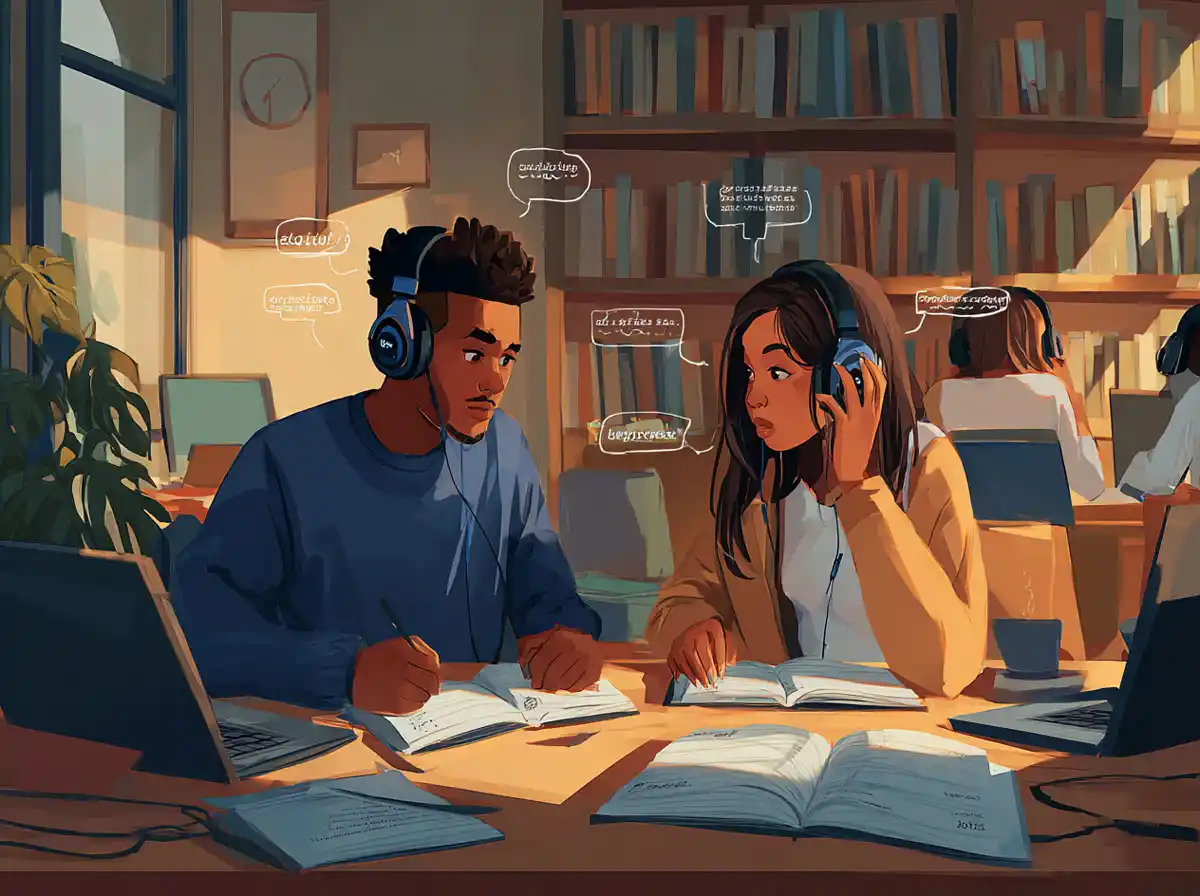Understanding “ಹುಡುಗ” (Huḍuga) – Boy
The word ಹುಡುಗ (Huḍuga) is the Kannada term for “boy.” This term is used to refer to a male child or young man. It is a fundamental word that you will frequently encounter in conversations, literature, and media.
ಹುಡುಗ (Huḍuga)
ಅವನ ಮಗನು ಒಳ್ಳೆಯ ಹುಡುಗನು.
ಮಗ (Maga) – Son
ನನ್ನ ಮಗನ ಹೆಸರು ರಾಕೇಶ್.
ಮಗ (Maga) means “son.” It is often used to refer to one’s male child.
ಯುವಕ (Yuvaka) – Young man
ಅವನು ಒಳ್ಳೆಯ ಯುವಕನಾಗಿದ್ದಾನೆ.
ಯುವಕ (Yuvaka) refers to a young man, typically someone who is in his teens or twenties.
ಸ್ನೇಹಿತ (Snehiṭa) – Friend (male)
ಅವನ ನನ್ನ ಸ್ನೇಹಿತ.
ಸ್ನೇಹಿತ (Snehiṭa) means “friend” and is usually used to refer to a male friend.
ವಿದ್ಯಾರ್ಥಿ (Vidyārthi) – Student (male)
ಅವನ ಒಳ್ಳೆಯ ವಿದ್ಯಾರ್ಥಿ.
ವಿದ್ಯಾರ್ಥಿ (Vidyārthi) means “student” and is used to describe a male student.
Usage in Sentences
Using the word ಹುಡುಗ (Huḍuga) in sentences can help you better understand its application:
ಅವನ (Avana) – His
ಅವನ ತಂದೆ ಒಳ್ಳೆಯ ವ್ಯಕ್ತಿ.
ಅವನ (Avana) means “his” and is used to denote possession for a male.
ನನ್ನ (Nanna) – My
ನನ್ನ ಸ್ನೇಹಿತನು ತುಂಬಾ ಚಿನ್ನದ ಹುಡುಗ.
ನನ್ನ (Nanna) means “my” and is used to denote possession.
ತಮಾಷೆ (Tamaśe) – Fun
ಅವರು ಕ್ರೀಡೆಯಲ್ಲಿ ತಮಾಷೆ ಮಾಡುತ್ತಾರೆ.
ತಮಾಷೆ (Tamaśe) means “fun” and is often used to describe enjoyable activities.
ಕ್ರೀಡೆ (Krīḍe) – Sport
ಹುಡುಗರು ಕ್ರೀಡೆಯಲ್ಲಿ ತೊಡಗಿದ್ದಾರೆ.
ಕ್ರೀಡೆ (Krīḍe) means “sport” and is commonly associated with physical activities.
Understanding “ಹುಡುಗಿ” (Huḍugi) – Girl
The word ಹುಡುಗಿ (Huḍugi) is the Kannada term for “girl.” This term is used to refer to a female child or young woman. Just like ಹುಡುಗ (Huḍuga), it is a basic word that will be frequently used in various contexts.
ಹುಡುಗಿ (Huḍugi)
ಅವಳು ಒಳ್ಳೆಯ ಹುಡುಗಿ.
ಮಗಳು (Magalu) – Daughter
ನನ್ನ ಮಗಳ ಹೆಸರು ಸುಹಾಸಿನಿ.
ಮಗಳು (Magalu) means “daughter.” It is used to refer to one’s female child.
ಯುವತಿ (Yuvati) – Young woman
ಅವಳು ಒಳ್ಳೆಯ ಯುವತಿಯಾಗಿದ್ದಾಳೆ.
ಯುವತಿ (Yuvati) refers to a young woman, typically someone who is in her teens or twenties.
ಸ್ನೇಹಿತೆ (Snehiṭe) – Friend (female)
ಅವಳು ನನ್ನ ಸ್ನೇಹಿತೆ.
ಸ್ನೇಹಿತೆ (Snehiṭe) means “friend” and is usually used to refer to a female friend.
ವಿದ್ಯಾರ್ಥಿನಿ (Vidyārthini) – Student (female)
ಅವಳು ಒಳ್ಳೆಯ ವಿದ್ಯಾರ್ಥಿನಿ.
ವಿದ್ಯಾರ್ಥಿನಿ (Vidyārthini) means “student” and is used to describe a female student.
Usage in Sentences
To better understand how to use ಹುಡುಗಿ (Huḍugi) in sentences, let’s look at some examples:
ಅವಳು (Avaḷu) – She
ಅವಳು ನನ್ನ ಅಕ್ಕ.
ಅವಳು (Avaḷu) means “she” and is used to refer to a female person.
ನನ್ನ (Nanna) – My
ನನ್ನ ಮಗಳು ತುಂಬಾ ಚಿನ್ನದ ಹುಡುಗಿ.
ನನ್ನ (Nanna) means “my” and is used to denote possession.
ಆಟ (Āṭa) – Game
ಹುಡುಗಿಯರು ಆಟದಲ್ಲಿ ತೊಡಗಿದ್ದಾರೆ.
ಆಟ (Āṭa) means “game” and is often used in the context of children playing.
ಶಿಕ್ಷಣ (Śikṣaṇa) – Education
ಹುಡುಗಿಯರು ಶಿಕ್ಷಣದಲ್ಲಿ ಮುಂದಿದ್ದಾರೆ.
ಶಿಕ್ಷಣ (Śikṣaṇa) means “education” and is commonly associated with learning and schooling.
Comparing “ಹುಡುಗ” (Huḍuga) and “ಹುಡುಗಿ” (Huḍugi)
While both ಹುಡುಗ (Huḍuga) and ಹುಡುಗಿ (Huḍugi) are used to refer to children, the key difference lies in their gender-specific usage. Understanding this distinction is crucial for proper communication in Kannada.
ಹುಡುಗರು (Huḍugaru) – Boys (plural)
ಹುಡುಗರು ಬಾಗಿಲಲ್ಲಿ ನಿಂತಿದ್ದಾರೆ.
ಹುಡುಗರು (Huḍugaru) is the plural form of ಹುಡುಗ (Huḍuga) and means “boys.”
ಹುಡುಗಿಯರು (Huḍugiyaru) – Girls (plural)
ಹುಡುಗಿಯರು ಮೈದಾನದಲ್ಲಿ ಆಡುತ್ತಿದ್ದಾರೆ.
ಹುಡುಗಿಯರು (Huḍugiyaru) is the plural form of ಹುಡುಗಿ (Huḍugi) and means “girls.”
ಅವರು (Avaru) – They
ಅವರು ನನ್ನ ಸ್ನೇಹಿತರು.
ಅವರು (Avaru) means “they” and can be used to refer to a group of people of any gender.
ಆಡುವ (Āḍuva) – Playing
ಹುಡುಗರು ಮತ್ತು ಹುಡುಗಿಯರು ಒಂದಾಗಿ ಆಡುವರು.
ಆಡುವ (Āḍuva) means “playing” and is often used to describe the activity of children.
ಸಹಪಾಠಿಗಳು (Sahapāṭhigaḷu) – Classmates
ಹುಡುಗರು ಮತ್ತು ಹುಡುಗಿಯರು ಒಟ್ಟಿಗೆ ಸಹಪಾಠಿಗಳು.
ಸಹಪಾಠಿಗಳು (Sahapāṭhigaḷu) means “classmates” and can refer to both boys and girls who study together.
Common Phrases and Expressions
Learning some common phrases that include ಹುಡುಗ (Huḍuga) and ಹುಡುಗಿ (Huḍugi) can further enhance your language skills:
ಹುಡುಗನ ಹೆಸರು (Huḍugana hesaru) – Boy’s name
ಹುಡುಗನ ಹೆಸರು ರವಿ.
ಹುಡುಗನ ಹೆಸರು (Huḍugana hesaru) means “boy’s name.”
ಹುಡುಗಿಯ ಹೆಸರು (Huḍugiya hesaru) – Girl’s name
ಹುಡುಗಿಯ ಹೆಸರು ಅಂಜಲಿ.
ಹುಡುಗಿಯ ಹೆಸರು (Huḍugiya hesaru) means “girl’s name.”
ಹುಡುಗನ ಸ್ನೇಹಿತ (Huḍugana snehiṭa) – Boy’s friend
ಅವನ ಹುಡುಗನ ಸ್ನೇಹಿತನಿಗೆ ಕರೆ ಮಾಡು.
ಹುಡುಗನ ಸ್ನೇಹಿತ (Huḍugana snehiṭa) means “boy’s friend.”
ಹುಡುಗಿಯ ಸ್ನೇಹಿತೆ (Huḍugiya snehiṭe) – Girl’s friend
ಅವಳ ಹುಡುಗಿಯ ಸ್ನೇಹಿತೆಗೆ ಆಹ್ವಾನ ಕೊಡು.
ಹುಡುಗಿಯ ಸ್ನೇಹಿತೆ (Huḍugiya snehiṭe) means “girl’s friend.”
ಹುಡುಗನ ವಸ್ತ್ರ (Huḍugana vastra) – Boy’s clothing
ಹುಡುಗನ ವಸ್ತ್ರ ತುಂಬಾ ನಾಜೂಕು.
ಹುಡುಗನ ವಸ್ತ್ರ (Huḍugana vastra) means “boy’s clothing.”
ಹುಡುಗಿಯ ವಸ್ತ್ರ (Huḍugiya vastra) – Girl’s clothing
ಹುಡುಗಿಯ ವಸ್ತ್ರ ತುಂಬಾ ಸೊಬಗು.
ಹುಡುಗಿಯ ವಸ್ತ್ರ (Huḍugiya vastra) means “girl’s clothing.”
Contextual Usage
Understanding the context in which these words are used can help you grasp their meanings more effectively:
ವಿದ್ಯಾಲಯ (Vidyālaya) – School
ಹುಡುಗರು ಮತ್ತು ಹುಡುಗಿಯರು ವಿದ್ಯಾಲಯದಲ್ಲಿ ಕಲಿಯುತ್ತಾರೆ.
ವಿದ್ಯಾಲಯ (Vidyālaya) means “school” and is a common place where you will find both boys and girls.
ಆಸ್ಪತ್ರೆ (Āsupatre) – Hospital
ಹುಡುಗನ ಮತ್ತು ಹುಡುಗಿಯ ಆರೋಗ್ಯ ಪರೀಕ್ಷೆ ನಡೆಯುತ್ತಿದೆ.
ಆಸ್ಪತ್ರೆ (Āsupatre) means “hospital” and is where health check-ups for boys and girls are conducted.
ಮಾರುಕಟ್ಟೆ (Mārukaṭṭe) – Market
ಹುಡುಗರು ಮತ್ತು ಹುಡುಗಿಯರು ಮಾರುಕಟ್ಟೆಗೆ ಹೋಗುತ್ತಾರೆ.
ಮಾರುಕಟ್ಟೆ (Mārukaṭṭe) means “market” and is a place where boys and girls might go shopping.
ಪಾರ್ಕ್ (Pārk) – Park
ಹುಡುಗರು ಮತ್ತು ಹುಡುಗಿಯರು ಪಾರ್ಕ್ನಲ್ಲಿ ಆಡುವರು.
ಪಾರ್ಕ್ (Pārk) means “park” and is a common recreational area for children.
ಆಸಕ್ತಿ (Āsakti) – Interest
ಹುಡುಗರು ಮತ್ತು ಹುಡುಗಿಯರು ವ್ಯಾಸಂಗದಲ್ಲಿ ಆಸಕ್ತಿ ತೋರಿಸುತ್ತಾರೆ.
ಆಸಕ್ತಿ (Āsakti) means “interest” and is often used in the context of hobbies and studies.
Conclusion
Mastering the words ಹುಡುಗ (Huḍuga) and ಹುಡುಗಿ (Huḍugi) is an essential step in learning Kannada. These words form the basis of many conversations and are crucial for anyone looking to communicate effectively in the language. By understanding their meanings, usage, and context, you can build a solid foundation in Kannada and continue to expand your vocabulary with confidence.
Remember, language learning is a journey, and every new word you learn brings you one step closer to fluency. Happy learning!










